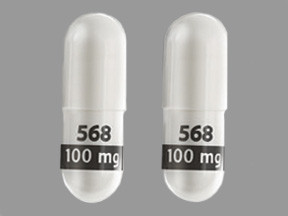VORINOSTAT - ORAL
PHONETIC PRONUNCIATION: (vor-IN-oh-stat)
COMMON BRAND NAME(S): Zolinza
GENERIC NAME(S): vorinostat
Uses
USES: Vorinostat is used to treat a certain type of cancer (CTCL-cutaneous T-cell lymphoma). It works by slowing or stopping the growth of cancer cells.
How to use VORINOSTAT - ORAL
HOW TO USE: Read the Patient Information Leaflet if available from your pharmacist before you start taking vorinostat and each time you get a refill. If you have any questions regarding the information, ask your doctor or pharmacist. Take this medication by mouth with food as directed by your doctor, usually once daily. Swallow the capsules whole. Do not crush, chew, or open the capsules. Do not use capsules that are opened or crushed. If your skin or eyes come in contact with the powder inside the capsule, wash the area well with plenty of water and call your doctor. The dosage is based on your medical condition and response to treatment. To prevent dehydration while taking this medication, drink at least 8 glasses of water (8 ounces/240 milliliters each) throughout the day unless your doctor directs you otherwise. Do not increase your dose or take this medication more often than prescribed. Your condition will not improve any faster, and the risk of serious side effects may be increased. Since this drug can be absorbed through the skin and lungs, women who are pregnant or who may become pregnant should not handle this medication or breathe the dust from the capsules. Tell your doctor if your condition does not improve or if it worsens.
Side Effects
Precautions
Interactions
Overdose
Images
Reviews
Faq for VORINOSTAT - ORAL
Vorinostat is used for the treatment of certain types of cancer, including cutaneous T-cell lymphoma (CTCL) and a type of lymphoma called peripheral T-cell lymphoma (PTCL).
Vorinostat works by blocking certain enzymes in cancer cells, leading to changes in gene expression that can slow down or stop the growth of cancer cells.
Common side effects of Vorinostat include fatigue, nausea, diarrhea, anorexia (loss of appetite), constipation, and vomiting. It can also cause skin reactions, such as rash or itching.
Vorinostat is taken orally as directed by a healthcare professional. It is usually taken once daily with food. The exact dosing schedule may vary depending on the specific type of cancer being treated.
Yes, Vorinostat has several important warnings. It can cause a decrease in blood platelet counts, which can increase the risk of bleeding. It can also cause serious heart problems, including irregular heartbeat and heart attack. It is important to closely monitor blood counts and cardiac function while using Vorinostat.
Yes, Vorinostat may interact with other medications. It can interact with drugs that affect liver enzymes, such as certain antifungal medications and antibiotics. It is important to inform the healthcare provider about all other medications being taken to avoid potential interactions.
No, Vorinostat is contraindicated during pregnancy and breastfeeding due to the potential harm it can cause to the developing fetus or infant. Effective contraception should be used during treatment with Vorinostat.
The duration of Vorinostat treatment varies depending on the individual's response to therapy and the type of cancer being treated. It is typically taken for extended periods or until disease progression occurs.
Yes, regular blood tests are necessary to monitor blood counts and liver function. Electrocardiograms (ECGs) may also be performed periodically to monitor cardiac function.
Vorinostat is an oral medication that belongs to a class of drugs called histone deacetylase inhibitors. It is used to treat a type of cancer called cutaneous T-cell lymphoma.
Before taking Vorinostat, inform your doctor about all other medications, including prescription and over-the-counter drugs, and any herbal supplements you are taking. Some medications may interact with Vorinostat, so it is important to discuss this with your doctor.
Vorinostat may cause severe allergic reactions in some individuals. It can also affect certain liver enzymes, so regular blood tests may be required during treatment. It is important to discuss any existing medical conditions with your doctor before starting Vorinostat.
There are no specific food or drink restrictions associated with Vorinostat. However, it is generally recommended to take the medication with food to help reduce gastrointestinal side effects.
It is generally recommended to avoid alcohol while taking Vorinostat. Drinking alcohol may increase the risk of liver damage and may intensify certain side effects of the medication.
Disclaimer
IMPORTANT: HOW TO USE THIS INFORMATION: This is a summary and does NOT have all possible information about this product. This information does not assure that this product is safe, effective, or appropriate for you. This information is not individual medical advice and does not substitute for the advice of your health care professional. Always ask your health care professional for complete information about this product and your specific health needs.

No Reviews Yet